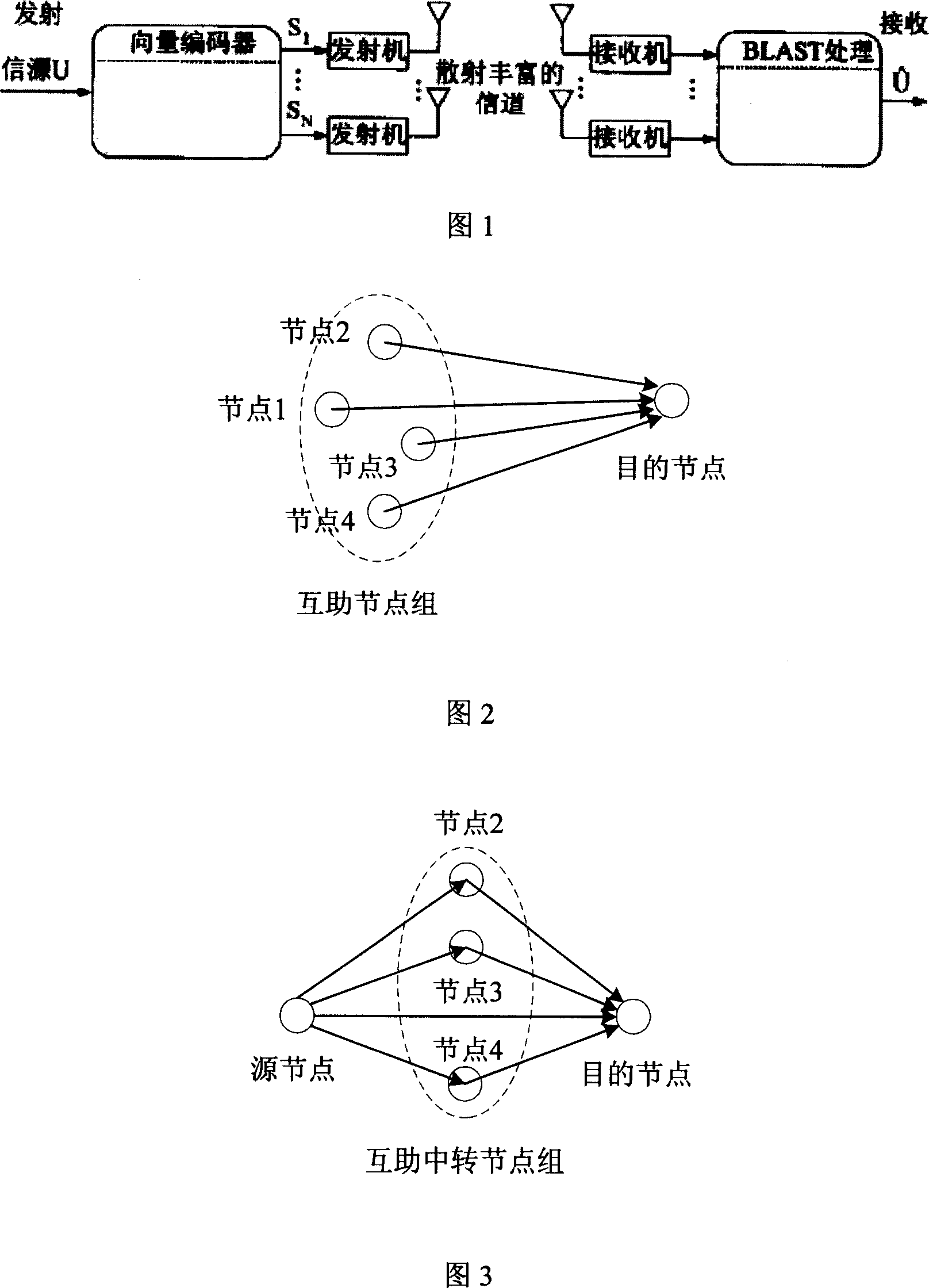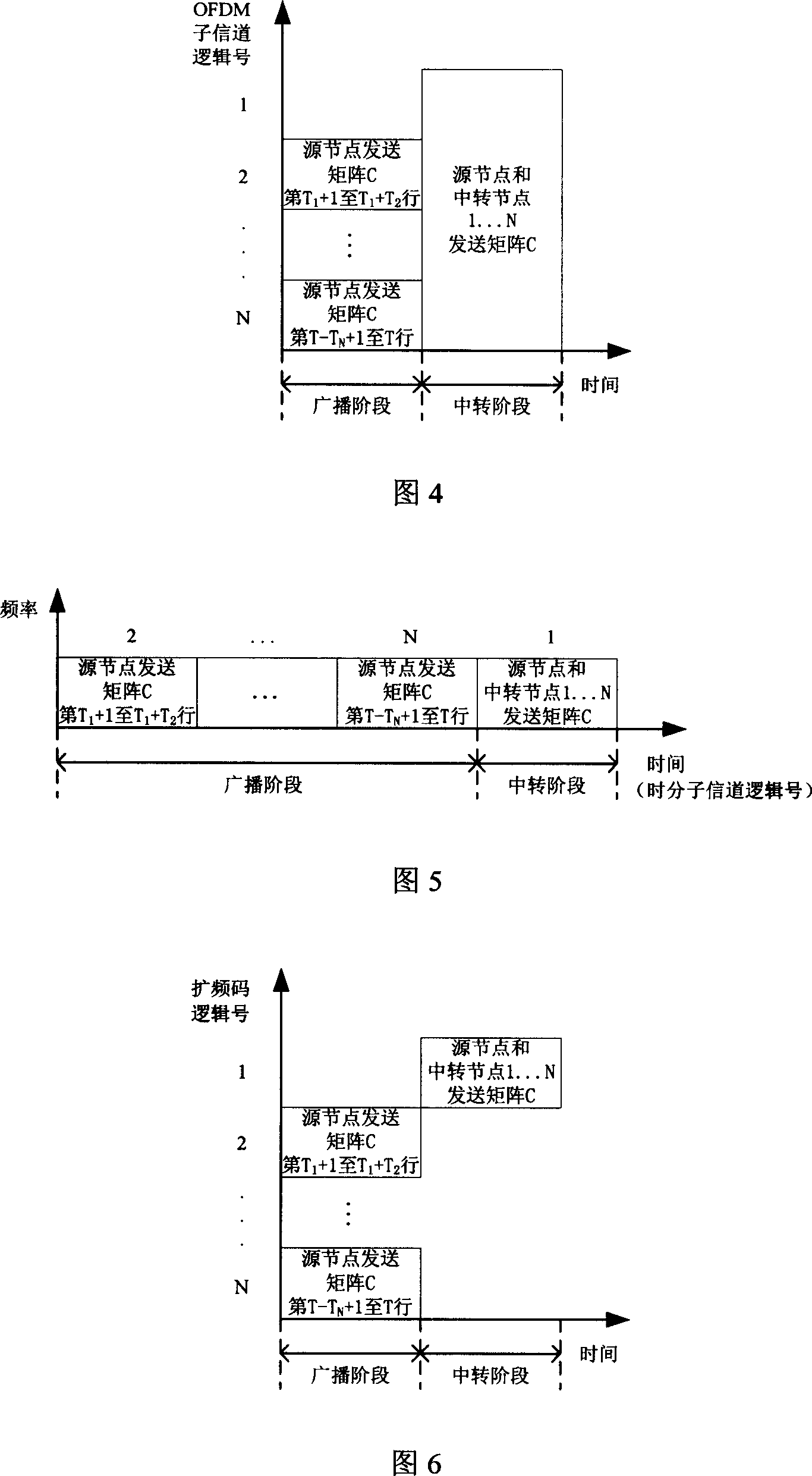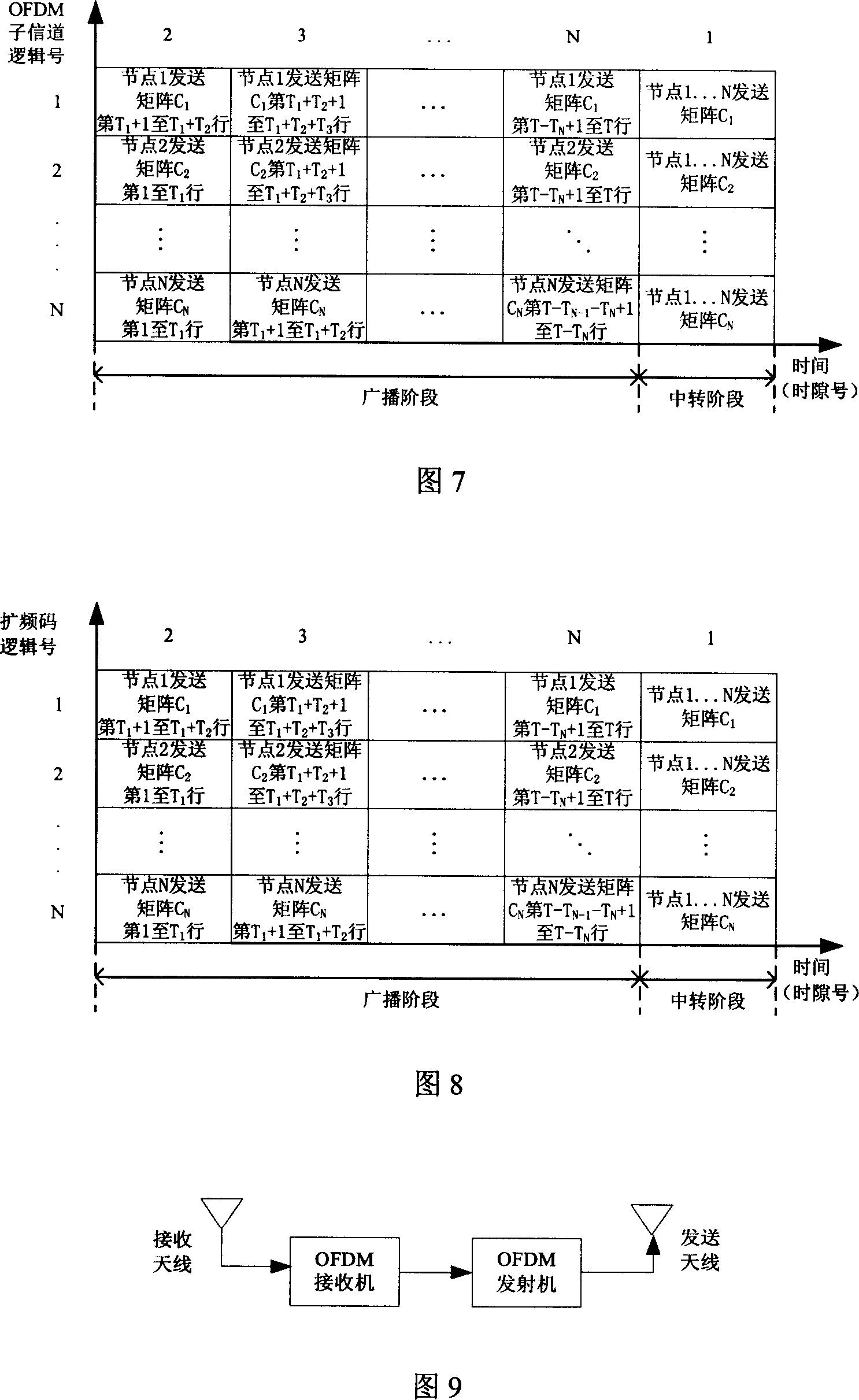Distribution intermediate method and intermediate system
A distributed, orthogonal frequency division technology, applied in radio relay systems, diversity/multi-antenna systems, transmission systems, etc., can solve problems such as occupying time periods, wide spectrum requirements, and increased throughput of user stations
- Summary
- Abstract
- Description
- Claims
- Application Information
AI Technical Summary
Problems solved by technology
Method used
Image
Examples
Embodiment Construction
[0076] The present invention is further elaborated below in conjunction with accompanying drawing and embodiment:
[0077]As shown in FIG. 2 , each node in the mutual-aid node group can communicate with the destination node, and the communication target of the mutual-aid node group is the destination node. There can be N nodes (N is a natural number) in the mutual aid node group, that is, node 1, node 2, ..., node N. For simplicity, only 4 nodes are given in the mutual aid node group in the figure as representatives.
[0078] In the mutual aid node group, nodes 1, 2, . Assuming that node 1 becomes the source node, other nodes (node 2, ..., node N) of the mutual aid node group will all become transfer nodes to form a mutual aid transfer node group, and the corresponding mutual aid transfer system based on distributed multi-input multi-output coding The model is shown in Figure 3. In addition to the direct communication channel, the communication channel between the source no...
PUM
 Login to View More
Login to View More Abstract
Description
Claims
Application Information
 Login to View More
Login to View More - R&D
- Intellectual Property
- Life Sciences
- Materials
- Tech Scout
- Unparalleled Data Quality
- Higher Quality Content
- 60% Fewer Hallucinations
Browse by: Latest US Patents, China's latest patents, Technical Efficacy Thesaurus, Application Domain, Technology Topic, Popular Technical Reports.
© 2025 PatSnap. All rights reserved.Legal|Privacy policy|Modern Slavery Act Transparency Statement|Sitemap|About US| Contact US: help@patsnap.com



